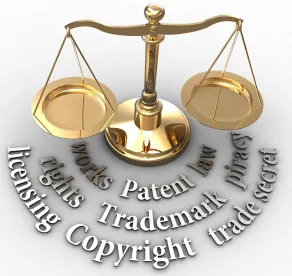The patent venue statute provides that “[a]ny civil action for patent infringement may be brought in the judicial district where the defendant resides.” 28 U.S.C. § 1400(b) (emphasis added). In TC Heartland, LLC v. Kraft Foods Grp. Brands, LLC, 137 S.Ct. 1517 (2017), the Supreme Court held that a corporate defendant resides in the state where it is incorporated, referring to its 1942 decision in Stonite Products Co. v. Melvin Lloyd Co., 315 U.S. 561 (1942) interpreting the statute’s prior provision for venue “in the district of which the defendant is an inhabitant.”
Does that mean that a company incorporated in Texas (a state that is big enough to be divided into four, separate federal judicial districts), or in any of the many states with more than one district, can be sued for patent infringement in any judicial district within the state? The Eastern District of Texas thinks so.
In Diem LLC v. BigCommerce, Inc., No. 6:17-CV-00186-JRG, BigCommerce, a company incorporated in Texas, sought to dismiss a patent infringement suit filed against it in the Eastern District of Texas, where it has no physical presence, arguing that it did not reside in the Eastern District but rather in the Western District where it has its Austin headquarters. Judge Gilstrap’s order denying the motion rejected that argument, stating that
“[a] Texas corporation is chartered by the State to pursue lawful commercial pursuits anywhere in Texas. It therefore resides in all the judicial districts of that state where it may pursue its commercial objectives.”
Judge Gilstrap found the Supreme Court’s decision in Stonite inapplicable on the ground that it addressed a different question, namely: whether “an inhabitant” of one district in a state could be sued in another district of the state without a “regular and established place” of business in that district.
BigCommerce has challenged the ruling by petitioning the Federal Circuit for a writ of mandamus directing the Eastern District of Texas to dismiss the case for improper venue. It argues that it is not automatically a resident of all judicial districts in Texas merely because it is a Texas corporation. BigCommerce points to the language of the statute itself, which provides for venue in “the judicial district” (singular) where the defendant resides, and further contends that Stonite already decided the issue by finding venue under the patent statute improper—even though the defendant was incorporated in the state—because the defendant had its principal place of business in the state’s other judicial district.
On December 26, 2017, the Federal Circuit suggested that it is poised to resolve the question when it ordered Diem to respond to the petition. In its response, Diem points to TC Heartland as having decided the issue when it held that a corporate defendant resides in “the state” where it is incorporated, and argued that Stonite and other cases do not answer the question posed, based on the different language in the predecessor venue statute and the different procedural posture of the cases, and because the answer would not be complete: Even if a corporation “must reside in a single judicial district . . . then in which judicial district does a corporation reside if it is incorporated in a multi-district state but maintains no place of business within the state?”
However, as noted in BigCommerce’s reply, venue for a company without any place of business in the state of its incorporation is not directly at issue in this particular case. BigCommerce also points to an even older Supreme Court decision on corporate residence–Galveston, H. & S.A. Ry. Co. v. Gonzales, 151 U.S. 496 (1894)–, which it says holds that a corporation that is both incorporated and doing business in a state is an inhabitant only in the district in which it has its headquarters or its principal place of business.
If the Federal Circuit relies on the plain language of the statute and the Stonite and/or Galveston decisions, it is likely to limit patent venue to the Texas federal judicial district in which BigCommerce is headquartered. It is less clear whether, and if so how, the court might address the more general question of what is the proper district for suit if a company has facilities in more than one, or no, judicial districts.
Barring unforeseen delay, a decision should issue soon.





 />i
/>i

